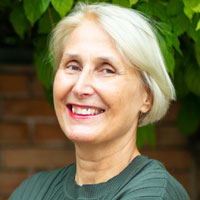Bio
Arntraud Hartmann is Senior Adjunct Professor at SAIS Europe
Arntraud Hartmann is a Panel Member of the Independent Accountability Mechanism (IAM) of the German, French and Dutch Development Banks (DEG, PROPARCO and FMO). She was formerly a member of the Independent Accountability Panels of the Asian and African Development Banks. These mechanisms investigate complaints from people harmed by development projects funded by the respective Development Finance Institution. She regularly heads reviews of IAMs of different multilateral institutions. Hartmann spent 23 years of her professional career with the World Bank, which she joined in 1981 as a Young Professional. Between 1981 and 2004 she held numerous positions at the World Bank, including ten years in Senior Management Positions, such as Director for Southeast European Countries and Advisor to the Managing Director. She also established and headed the first World Bank Office in Romania (1991-1996) established after the Romanian revolution. Hartmann also worked with the IFAD Quality Assurance Department, was a Research Fellow with the UNICEF Innocenti Center (1996-97) and was Senior Advisor to the World Commission on the Social Dimensions of Globalization (2002-2004).
Since 1997, Hartmann has taught courses in development policy and development economics at SAIS Europe. She obtained the Excellence of Teaching Award in 2014, 2019 and 2020. She also was Visiting Professor at the Hertie School of Governance in Berlin, Germany.
Hartmann holds degrees in laws and economics from Hamburg University and American University, Washington, DC, as well as diplomas in development policy and finance from the German Development Institute, Johns Hopkins University and Harvard University.
